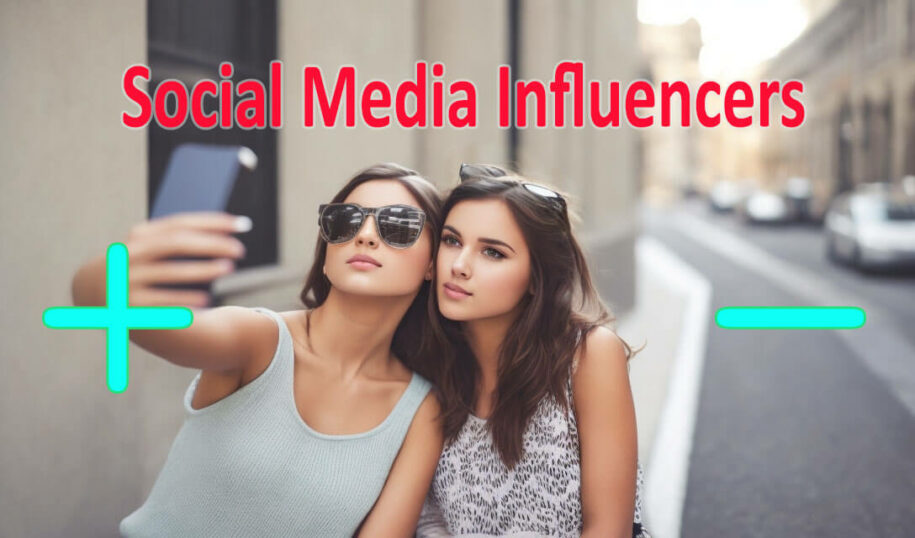Are you considering using influencers in your social media post strategy? If so, it’s important to understand the advantages and disadvantages of doing this. Influencer marketing can be a powerful tool to reach a large audience, but potential pitfalls need to be considered.
In this blog post, we will explain the pros and cons of social media influencers so you can make an informed decision about incorporating them into your overall marketing strategy. Keep reading for more insights.
Who Are Influencers?
An influencer is a person who has the power to affect the purchasing decisions of others because of their authority, knowledge, position, or relationship with their audience. Social media influencers are typically social media personalities that have built up a large following on social media platforms such as YouTube, Instagram, Twitter, and TikTok. They use these channels to share content with millions of followers, from fashion tips and product reviews to tutorials and lifestyle advice.
Influencers have become increasingly popular in recent years, especially with the rise of social media. As brands look to create content that resonates with their relevant audience, they are using social media influencers to help promote their products and services. This form of marketing is known as influencer marketing, and it has become an integral part of many businesses’ digital marketing strategies.
Pros of Using Influencers on Social Media

Using influencers on social media can be a great way to increase brand awareness and engagement. Here are some benefits of utilizing the influencer space in your digital marketing plan:
Wider Audience
Influencers can help brands reach a wider niche audience because they already have an established following of loyal fans. The advantage of using any influencer marketing industry is that their audiences will likely be interested in the same topics related to the brand’s products or services. This means there’s less work for marketers trying to find these people. Additionally, influencers often have high levels of engagement with their followers, meaning that the brand’s message can be spread quickly and effectively.
More Trust
Trust is an essential factor in any relationship, and it’s no different when it comes to marketing budgets. Consumers trust influencers more than brands, as they feel closer to the individual. These long-term partnerships can be transferred to the brand itself and increase the effectiveness of its advertising campaigns. By working with influencers, businesses can build relationships with their target audiences based on trust and loyalty.
Enhanced Brand Image
Using influencers to promote a product or service can positively affect the brand’s image. When influencers promote a brand, their follower counts increase since they view them as trustworthy, and their opinion is more likely to be considered valid. As such, working with influential people can help brands to become more trusted and reputable in the eyes of consumers.
If audiences find the influencer relatable, they are more likely to connect with the brand. This social proof can lead to improved customer loyalty and increased engagement with their content. In addition, working with influencers with a good reputation can directly influence how consumers feel about the brand. Positive associations built through collaborations will enhance the company’s overall image, increasing brand recognition and trust.
Expanding Reach
Influencers can reach a wide range of people with their content. By working with influencers, businesses can tap into larger markets that may not be accessible through traditional advertising. This increased reach can drive more awareness and exposure for a brand, allowing it to capture new audiences and potentially increase its customer base.
Influencer-created content can be a great way to reach specific demographic groups. For example, if you want to target younger customers, working with relevant influencers in that age bracket could provide more effective results than traditional campaigns. Additionally, tapping into an influencer’s existing audience will ensure that your message reaches a large and engaged group of people familiar with the influencer’s content.
Saving Time
Working with influencers can save a significant amount of time when compared to creating new content. Producing and distributing content through influencers allows brands to get their message out quickly while saving on costs associated with traditional marketing campaigns. Influencers can also provide valuable insights and feedback on campaigns to help brands refine their strategies for improved results.
Generating Brand Awareness
Brand awareness is essential for any business to grow and succeed. Partnering with influencers can help businesses generate more attention and fresh ideas for their brand. Influencers can share high-quality content featuring the brand, helping it reach larger audiences and creating positive associations in people’s minds. Through collaborations, online personalities can also create unique content that will stand out to your network of followers while showcasing the features and benefits of a product or service.
Cons of Using Influencers on Social Media

Although influencer marketing can be an effective way to reach customers, it has a few potential drawbacks. These include the following:
Less Control
Businesses have less control over the content created by influencers. This means that brands must be sure they are working with influencers who will create a content marketing strategy that aligns with their values and mission statement. Additionally, businesses may only know how an influencer’s audience will react to a particular content after posting it. This can lead to unwanted attention or even an online controversy the brand may have trouble recovering.
Wrong Influencers Can Damage a Brand’s Reputation
A wrong influencer choice for collaboration can harm a brand’s reputation. Brands must vet potential influencers to ensure their values align with the company’s mission and goals. Brands should also take the time to research each influencer’s followers, learning more about them and which influencer platforms they like or dislike.
This will ensure that the influencer’s content resonates with their target audience and is not overly controversial. Businesses should also check influencers’ past collaborations and ensure they have not been involved in negative publicity or controversies. Ensuring the chosen influencers are a good fit for the brand will go a long way in protecting its reputation.
Influence of Haters
Although it is unlikely to happen with verified influencers, people may post fake reviews on their content. These fake followers could lead to negative attention for promoting the product or service. Businesses should be aware of this risk and take the appropriate steps to reduce it.
They can do this by monitoring feedback regularly and responding quickly if any issues arise. Additionally, businesses should have a detailed moderation policy to promptly identify and delete any comments or posts that could damage the brand’s reputation. This will ensure that potential customers are not influenced by negative attention surrounding the product or service and may encourage more people.
Unpredictable Results
No matter how hard you try, it is impossible to predict the success of an influencer marketing campaign. The results often depend on various factors that can’t be controlled. Therefore, businesses should avoid setting overly ambitious campaign goals and instead focus on gaining brand recognition through collaboration.
By developing realistic strategies and utilizing metrics to monitor progress, businesses can evaluate the success of their campaigns and make adjustments as needed. Understanding the strengths and weaknesses of each campaign will help companies make more informed decisions in the future.
Conclusion
Influencer marketing can be a potent tool for businesses looking to increase their brand’s visibility while building trust. However, it is important to consider the potential risks associated with this type of marketing before diving in. By setting realistic goals, monitoring influencers’ pros and cons regularly, and responding quickly to any negative attention, businesses can ensure that their campaigns are successful and beneficial for all involved.
- How to Encourage Comments and Likes on Your YouTube Videos - janvier 3, 2025
- How Long Should Your Youtube Videos Be? - janvier 3, 2025
- Unleash the Growth of the Channel Through Partnerships - décembre 2, 2024

